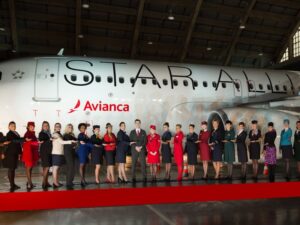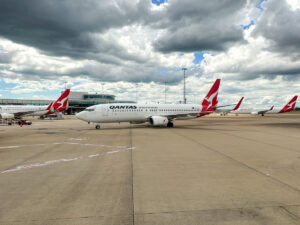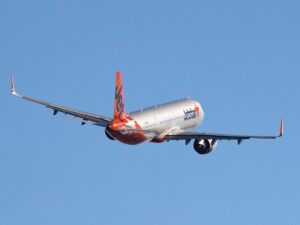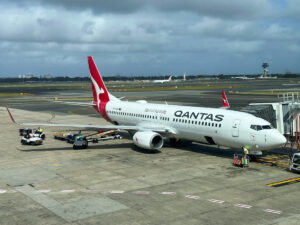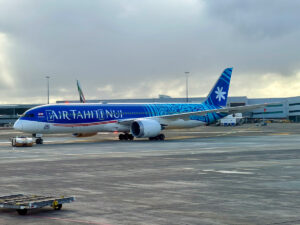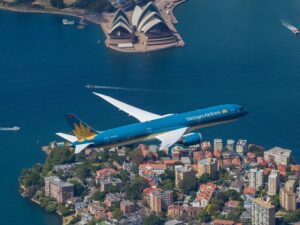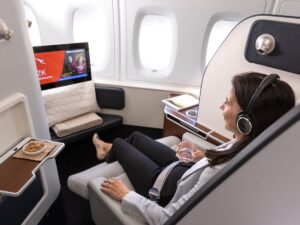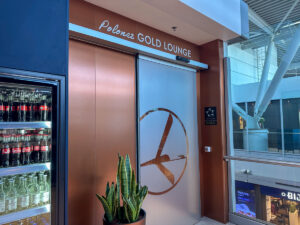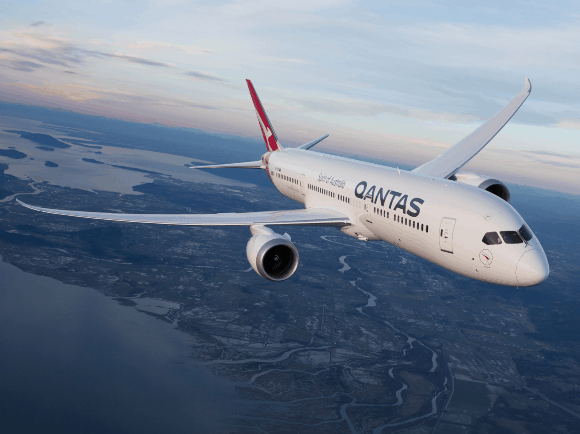
The Qantas Group has committed to reducing its carbon emissions to net zero emissions by 2050. In making this announcement, Qantas has joined a growing number of airlines to recognise the importance of sustainability in the aviation industry, which contributes around 2% of the global carbon emissions causing climate change.
Qantas will now match its customers’ contributions to its carbon offset program, effectively doubling the number of flights being offset overnight. In July, the airline also began offering 10 Qantas points per dollar spent on carbon offsets, a move aimed to encourage more passengers to offset their emissions.
In addition, Qantas will permanently cap its net emissions at 2020 levels and invest $50 million over the next 10 years in the sustainable fuel industry.
Flying is one of the most environmentally-unfriendly ways to travel. In fact, if every single passenger on a flight drove a sports car to their destination, the amount of carbon emissions produced would still be lower. This is why Dutch airline KLM launched a campaign earlier this year encouraging the public to catch a train or use video conferencing instead of flying.
Nonetheless, the aviation industry continues to grow rapidly with a 5-10% increase in passengers year-on-year. Commercial aviation is here to stay and people aren’t going to stop flying anytime soon, so it’s now up to the industry to ensure this can be done sustainably for years to come.
According to KLM, investing in sustainable fuels and carbon offsetting are two key ways to minimise the environmental impact of aviation. This is exactly what Qantas announced this week that it will do.
“We want to do more, and faster,” said Qantas CEO Alan Joyce. “We’re effectively doubling our carbon offsetting program from today and we’re capping our net emissions across Qantas and Jetstar from 2020 so that all new flying will be carbon neutral.
“Qantas offsets all of its own travel needs and so do many of our customers. By matching their efforts, we’re hoping it will encourage even more people to offset and the program will keep growing.”
While Joyce recognises the environmental impact of the aviation industry, he doesn’t think that flying less is the solution. This is particularly the case in Australia, where there are no high-speed trains connecting capital cities (trains from Sydney to Melbourne run only twice per day and the trip takes 11 hours), and the country is physically surrounded by water.
“Concerns about emissions and climate change are real, but we can’t lose sight of the contribution that air travel makes to society and the economy. The industry has already come a long way in cutting its footprint and the solution from here isn’t to simply ‘fly less’ but to make it more sustainable,” Joyce said.
Carbon offsetting
Qantas and Virgin Australia have both offered customers the option to offset their carbon emissions from each flight since 2007. So, how does this work exactly?
When you pay to offset your carbon emissions, the airline is effectively purchasing carbon credits from a reputable organisation which, in Australia, is endorsed by the National Carbon Offset Standard. This has the effect of removing CO2 elsewhere in the world to compensate for your share of carbon emissions produced from your flight.
The money from carbon credits is invested in many different ways. For example, Qantas Future Planet partners with projects that aim to reduce wildfires and preserve rainforests. Air New Zealand’s FlyNeutral program does similar work in New Zealand. These projects all have the ultimate goal of reducing carbon emissions in the atmosphere.
As a frequent flyer, purchasing carbon offsets is one way that you can reduce your personal impact on the environment. Even if you’re flying with an airline that doesn’t offer carbon offsetting, such as Emirates, you can still calculate your carbon footprint online and purchase carbon credits from a reputable provider.
